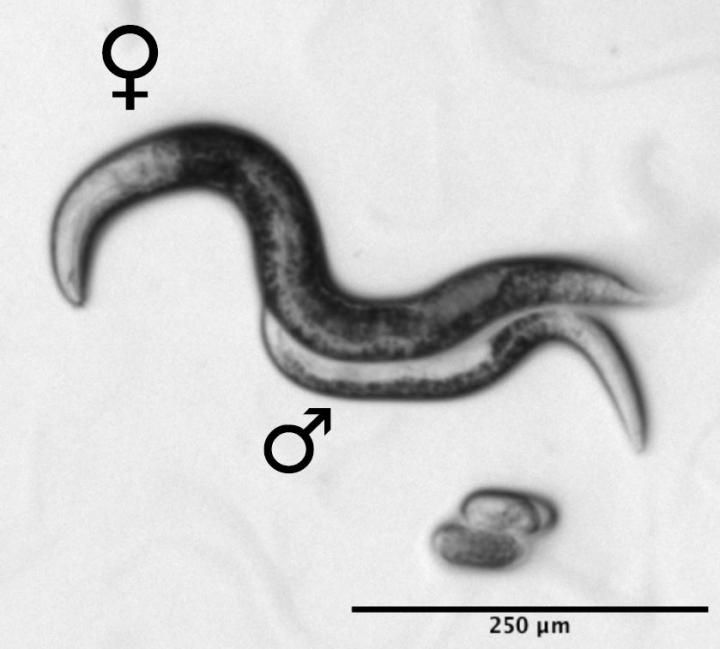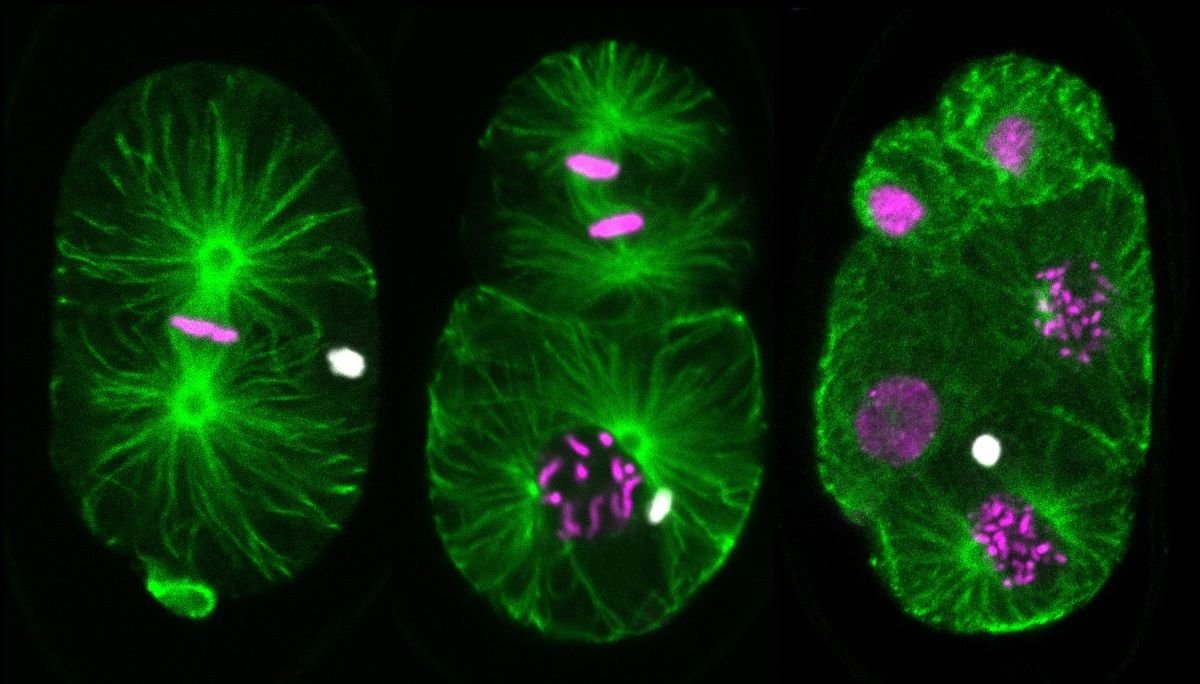
There is a species of worm in which the females only produce males for their sperm, scientists have discovered. The reproductive strategy, thought to be unique to nematodes, ensures no genetic material from males ever enters the female population and keeps the population stable.
Researchers led by Marie Delattre, from the l'ENS de Lyon in France, were building on observations taken by biologist Victor Nigon 70 years earlier. He had noticed that one species of nematode—Mesorhabditis belari—had a very low population of males and that female embryos were clones of their mothers.
Delattre and her team have now carried out genetic analysis of the nematodes to find out exactly what is going on. Their findings, published in the journal Science, revealed their bizarre reproduction strategy.
"[I was] very surprised," she said. "It is very unusual to find a species where males are not needed for their genes. Often, females have interest in producing males mainly because they spread their genes—and so the genes of their mothers—and through crosses allow genetic mixing, leading to healthy genomes."
The team found that females need the male sperm to activate their eggs—but most of the time no genetic material is passed on, meaning all the females were clones. However, 9 percent of the time, a male was produced. When genetic material from a male was used after the egg was fertilized, a male was always produced. These males could only reproduce with their female siblings and could only pass on their genetic material to sons—meaning their DNA would never enter the female gene pool.
The figure of 9 percent, they say, was analyzed using game theory—a mathematical model often used in social sciences. Researchers found the nematode system allowed the species to maintain a stable population.

How such an unusual reproductive system evolved is now being investigated. "One hypothesis we have is that the ancestral species, which was a sexual species (that we know), maybe had a strong fertilization toward Y bearing sperm…. But it is bad for a species to have too many males, so maybe this system emerged as an anti-drive system: Let's get rid of the male DNA, so that we have more females," Delattre said.
But why keep males around at all? Delattre says that if certain mutations arise, eventually these nematodes might become an all-female species. "It is clear that if a mutation emerges in these population that would allow females to develop without the males, the mutation will invade the population and these males would disappear," she said. "But we think that if they keep this reproductive system it is because there is no mutation that allows this."
The team plans to look at the genome of the nematodes and evolution scenarios that could have led to the system. Delattre also said that it might be found elsewhere among species thought to be asexual. "[It was] only because we could follow their reproduction in the lab that we discovered this reproductive system," she said. "Knowing that this reproductive strategy exists, many more species could be re-analyzed, and some may show the same feature. I am convinced that this is not a nematode specific system."
Uncommon Knowledge
Newsweek is committed to challenging conventional wisdom and finding connections in the search for common ground.
Newsweek is committed to challenging conventional wisdom and finding connections in the search for common ground.
About the writer
Hannah Osborne is Nesweek's Science Editor, based in London, UK. Hannah joined Newsweek in 2017 from IBTimes UK. She is ... Read more
To read how Newsweek uses AI as a newsroom tool, Click here.








